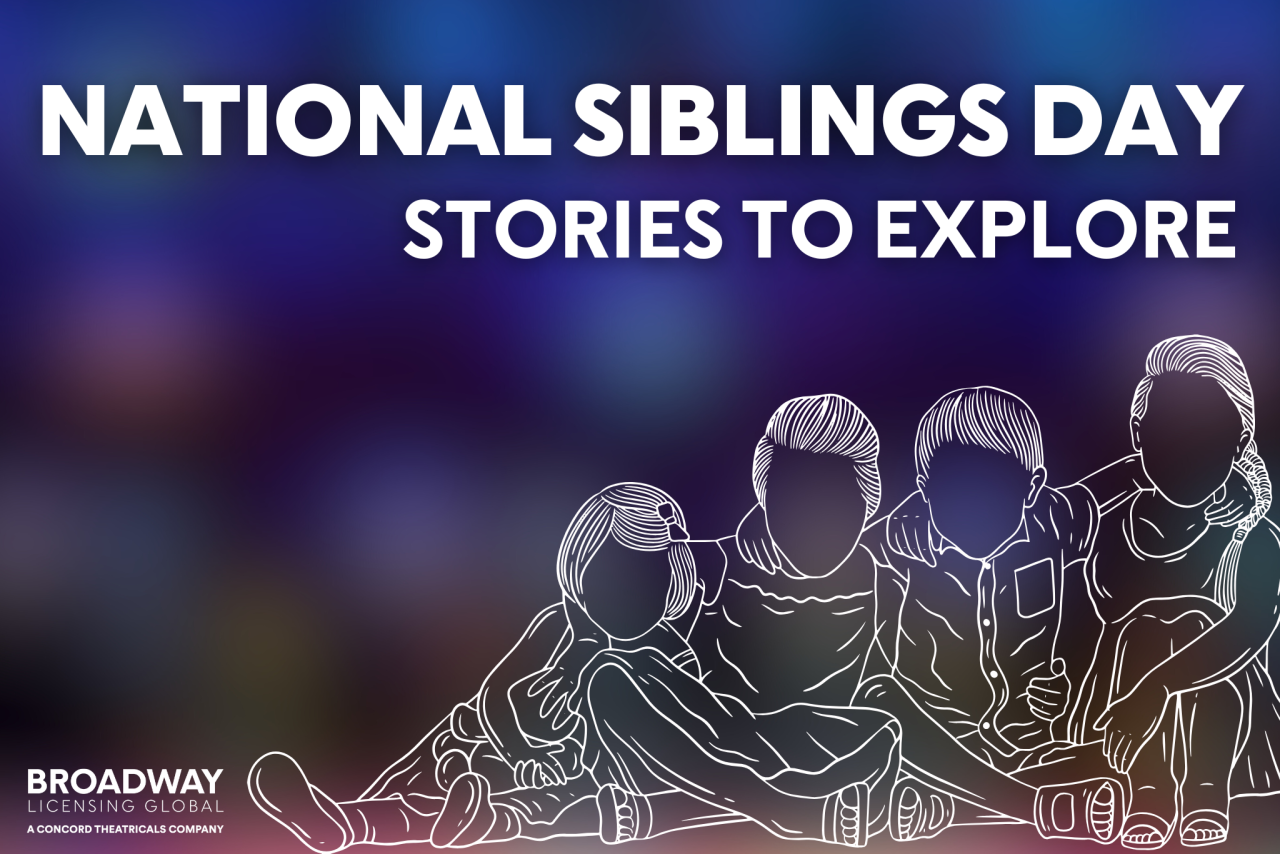Dramatists Play Service
Appropriate by
Every estranged member of the Lafayette clan has descended upon the crumbling Arkansas homestead to settle the accounts of the newly-dead patriarch. As his three adult children sort through a lifetime of hoarded mementos and junk, they collide over clutter, debt, and a contentious family history. But after a disturbing discovery surfaces among their father’s possessions, the reunion takes a turn for the explosive, unleashing a series of crackling surprises and confrontations.
Winner of the 2024 Tony Award® for Best Revival of a Play
Sons of the Prophet by
If to live is to suffer, then Joseph Douaihy is more alive than most. With unexplained chronic pain and the fate of his reeling family on his shoulders, Joseph’s health, sanity, and insurance premium are on the line. In an age when modern medicine has a cure for just about everything, Sons of the Prophet is the funniest play about human suffering you’re likely to see.
Winner of the 2012 Drama Critics’ Circle for Best Play, Outer Critics Circle for Outstanding Play, Lucille Lortel Award for Best Play, and a 2012 Pulitzer Prize Finalist
Of Good Stock by
When legendary novelist Mick Stockton died, he left his three daughters a house in Cape Cod, control over his books, and a whole lot of issues. Years later, the men in their lives struggle to be a part of this elusive family’s legacy. It’s not always easy keeping up with the hurricane of the whip-smart and sharp-tongued Stockton Sisters. Especially during a weekend filled with dramatic confrontations and surprising confessions. But good scotch helps. A raw, poignant, and hilarious look at the fun and dysfunction of family.
Brooklyn Laundry by John Patrick Shanley
Fran is a pessimist who’s terrified of making decisions. Owen is a guy who sees life for what it is and finds ways to make the best of it. Both of them are lonely, and find in each other what could be a meaningful connection. But when Fran’s sisters need her more than ever, she is faced with the most difficult choice she’s ever had to make. Brooklyn Laundry is about romance, family, joy, and responsibility. Most of all, it’s a play about choosing to love and be loved.
We Live by the Sea, devised by Lloyd Bagley, Alex Brain, Alex Howarth, Alex Simonet and Elizabeth Williams
Katy lives with her sister, Hannah, and her imaginary dog, Paul Williams, in a quiet English coastal town. When Ryan, a lonely teenager, moves there from the city, he and Katy form a bond that upends Katy’s regimented world. We Live By the Sea is an innovative and moving play about autism and what it means to be a friend.
Georgiana and Kitty: Christmas at Pemberley by Lauren Gunderson and Margot Melcon
The third and final play in the Pemberley trilogy. (Miss Bennet: Christmas at Pemberley, The Wickhams: Christmas at Pemberley)
Georgiana Darcy is an accomplished pianist but wary of romance. Kitty Bennet is a bright-eyed optimist and a perfect best friend. These two younger sisters are ready for their own adventures in life and love, starting with the arrival of an admirer and secret correspondent. Meddlesome families and outmoded expectations won’t stop these determined friends from forging their own way in a holiday tale filled with music, ambition, sisterhood, and forgiveness.
Moscow Moscow Moscow Moscow Moscow Moscow by
Ever since their brother Andrey gambled away the family fortune, Olga, Masha, and Irina have been doomed to the boredom of the Russian countryside. One day soon, they hope, they’ll return home to Moscow and live the exciting lives they were always meant to have. When the military comes to town, bringing with them variety, entertainment, and a whole lot of chaos, Moscow feels closer than ever and it seems the sisters’ luck is about to change. In this contemporary twist on Chekhov’s Three Sisters, one delightfully dysfunctional family navigates the absurdity of class, culture, and love.
Included in Broadway Book Club’s College Theatre Pack
Me, Myself & I by
Mother can’t tell her identical twins apart. But when Otto announces his brother doesn’t exist, the household descends into chaos. Tony Award® and Pulitzer Prize–winner Edward Albee is in top form with this dark, funny and moving play that takes sibling rivalry to existential heights.
Harvey by Mary Chase
Elwood P. Dowd insists on including his friend Harvey in all of his sister Veta’s social gatherings. Trouble is, Harvey is an imaginary six-and-a-half-foot-tall rabbit. To avoid future embarassment for her family—and especially for her daughter, Myrtle Mae—Veta decides to have Elwood committed to a sanitarium. At the sanitarium, a frantic Veta explains to the staff that her years of living with Elwood’s hallucination have caused her to see Harvey also, and so the doctors mistakenly commit her instead of her mild-mannered brother. The truth comes out, however; Veta is freed, and the search is on for Elwood, who eventually arrives at the sanitarium of his own volition, looking for Harvey. But it seems that Elwood and his invisible companion have had a strange influence on more than one of the doctors. Only at the end does Veta realize that maybe Harvey isn’t so bad after all.
Winner of the 1945 Pulitzer Prize for Drama
The House That Will Not Stand by Marcus Gardley
In early nineteenth-century New Orleans, a widowed mother, Beartrice, struggles to manage her headstrong daughters after the death of her second husband. But as the matriarch takes her place as head of the household, a more ominous transfer of power transpires in the region. The French-owned Louisiana Territory is about to be acquired by the United States, threatening the liberty of the free people of color residing on the land. A gripping examination of intersecting captivities, The House That Will Not Stand follows four women in mourning as they look ahead to an uncertain and haunting future.
Arsenic and Old Lace by
Drama critic Mortimer Brewster’s engagement announcement is upended when he discovers a corpse in his elderly aunts’ window seat. Mortimer rushes to tell Abby and Martha before they stumble upon the body themselves, only to learn that the two old women aren’t just aware of the dead man in their parlor, they killed him! Between his aunts’ penchant for poisoning wine, a brother who thinks he’s Teddy Roosevelt, and another brother using plastic surgery to hide from the police—not to mention Mortimer’s own hesitancy about marriage—it’ll be a miracle if Mortimer makes it to his wedding. Arsenic and Old Lace is a classic black comedy about the only thing more deadly than poison: family.
Having Our Say, The Delany Sisters’ First 100 Years by Emily Mann, adapted from the book Having Our Say by Sarah L. and A. Elizabeth Delany with Amy Hill Hearth, based on the lives of Sadie and Bessie Delany
Having Our Say opens as 103-year-old Sadie Delany and 101-year-old Bessie Delany welcome us into their Mount Vernon, New York, home. As they prepare a celebratory dinner in remembrance of their father’s birthday, they take us on a remarkable journey through the last hundred years of our nation’s history, recounting a fascinating series of events and anecdotes drawn from their rich family history and careers as pioneering African-American professionals. Their story is not simply African-American history or women’s history. It is our history, told through the eyes of two unforgettable women as they look not only into the past, but also ahead into the twenty-first century.
Vanya and Sonia and Masha and Spike by
Middle-aged siblings Vanya and Sonia share a home in Bucks County, PA, where they bicker and complain about the circumstances of their lives. Suddenly, their movie-star sister, Masha, swoops in with her new boy toy, Spike. Old resentments flare up, eventually leading to threats to sell the house. Also on the scene are sassy maid Cassandra, who can predict the future, and a lovely young aspiring actress named Nina, whose prettiness somewhat worries the imperious Masha.
Winner of the 2013 Tony Award® for Best Play
The Baltimore Waltz by Paula Vogel
When Anna, an unmarried schoolteacher, is diagnosed with ATD, Acquired Toilet Disease, a fatal new malady with a high risk factor for elementary school teachers, she and her brother Carl take flight to Europe. Anna decides she wants to drown herself in the sensuality of food and sex, while Carl becomes involved in a wild Third Mannish espionage scheme to find a cure for his sister on the Continent. Something is not quite right with the scenario, and the largest hint is dropped when Anna shows slides of their trip to Europe where each frame looks exactly like Baltimore. Carl’s quest for a cure dead ends with a mad Viennese quack. Their European idyll is broken by Carl’s death, and the tragic revelation that the entire play was Anna’s valiant fantasy to keep alive her brother’s spirit when she could not save his life.
Dancing at Lughnasa by Brian Friel
This extraordinary play is the story of five unmarried sisters eking out their lives in a small village in Ireland in 1936. We meet them at the time of the festival of Lughnasa, which celebrates the pagan god of the harvest with drunken revelry and dancing. Their spare existence is interrupted by brief, colorful bursts of music from the radio, their only link to the romance and hope of the world at large. The action of the play is told through the memory of the illegitimate son of one of the sisters as he remembers the five women who raised him: his mother and four maiden aunts. He is only seven in 1936, the year his elderly uncle, a priest, returns after serving for twenty-five years as a missionary in a Ugandan leper colony. For the young boy, two other disturbances occur that summer. The sisters acquire their first radio, whose music transforms them from correct Catholic women to shrieking, stomping banshees in their own kitchen. And he meets his father for the first time, a charming Welsh drifter who strolls up the lane and sweeps his mother away in an elegant dance across the fields. From these small events spring the cracks that destroy the foundation of the family forever. Widely regarded as Brian Friel’s masterpiece, this haunting play is Friel’s tribute to the spirit and valor of the past.
Winner of the 1992 Tony Award® for Best Play
The Brothers Size by
In the Louisiana bayou, big brother Ogun Size is hardworking and steady. Younger brother Oshoosi is just out of prison and aimless. Elegba, Oshoosi’s old prison-mate, is a mysterious complication. A simple circle defines a world that begins in ritual and evolves into a tough and tender drama of what it means to brother and be brothered. Flights of poetry, music, dance and West African mythology combine in a contemporary tale that explores the tenuousness of freedom and the need to belong somewhere, to something, to someone.
Part of The Brother/Sister Plays: In the Red and Brown Water, The Brothers Size, and Marcus; or The Secret of Sweet.
Lily Dale by
After the death of his alcoholic father, and his mother’s remarriage, young Horace Robedaux remained in Harrison, Texas, clerking in a dry goods store. When his mother invites him to visit her and his teenage sister, Lily, in Houston, Horace eagerly accepts, hoping to resettle and find more promising employment. Once in Houston, Horace is confronted by his gruff, surly stepfather, who dotes on his spoiled sister, Lily, but dislikes Horace intensely—and shortly orders him to leave. Horace’s departure, however, is delayed by a sudden bout of illness, which forces him to stay on for several weeks as an invalid. This gives him the chance to reestablish his relationship with his sister, whose memories of their late father are as bitter as Horace’s are forgiving. In the end Horace returns to Harrison, convinced that during his brief stay the demons of the family’s past have been exorcised and that he, as well as his mother and sister, can now face the future with a renewed strength of spirit.
Broadway Licensing
Head Over Heels, adapted by James Magruder, music & lyrics by The Go-Go’s
Head Over Heels is the bold new musical comedy from the visionaries that rocked Broadway with Hedwig and the Angry Inch, Avenue Q and Spring Awakening. This laugh-out-loud love story is set to the music of the iconic 1980’s all-female rock band the Go-Go’s, including the hit songs, “We Got the Beat,” “Our Lips Are Sealed,” “Vacation,” Belinda Carlisle’s “Heaven is a Place on Earth,” and “Mad About You.”
A hilarious, exuberant celebration of love, Head Over Heels follows the escapades of a royal family on an outrageous journey to save their beloved kingdom from extinction—only to discover the key to their realm’s survival lies within each of their own hearts.
Little House on the Prairie Book by Rachel Sheinkin, Music by Rachel Portman, Lyrics by Donna di Novelli, Based on the ‘Little House’ books by Laura Ingalls Wilder
This heartwarming musical follows the Ingalls family’s journey westward and settlement in De Smet, South Dakota where Ma and Pa Ingalls hope to make a better life for their children. It tells the story of their struggle to keep their land claim. In story, song, and dance, we see the Ingalls weathering the hardships of winter blizzards and prairie fires as well as rejoicing in the settlement of land and town. Most of all, the story follows Laura as she grows from a wild child who loves to run free into a woman who embraces the responsibilities of her own future while struggling to remain true to herself.
String Book by Sarah Hammond, Music & Lyrics by Adam Gwon
After angering Zeus, the Fates, the goddess sisters who spin, measure, and snip the strings of life for every human on Earth, find themselves banished to a modern office building in the mortal world, where they continue their work hidden among the mortals whose destinies they weave into one giant, glorious tapestry. When eldest sister Atropos accidentally loses her pair of scissors in the building, she meets Mickey, the building’s overnight security guard. Soon love gets the better of her, and she finds herself falling for him, stealing his string to keep him immortal and defying all of the rules she has to follow as a goddess. This exception to the rules begins to disrupt the natural order—can the tapestry of the Universe and her sisters stand this flaw? Fall for this original, uplifting, and belty musical about fate, love, and the imperfections that make us human.
Goblin Market, book by Polly Pen and Peggy Harmon, music & lyrics by Polly Pen
Two proper Victorian sisters, both now grown women and mothers, return to their childhood nursery to relive the haunting memories of their youth. Magically, they are transported back to their girlhood, as their nursery becomes a woodland glen peopled by bizarre goblins who entice them with luscious fruits and promises of unimagined ecstasies. One of the sisters, Laura, partakes of the forbidden offerings, while her sibling, Lizzie, bargains desperately with the fey creatures to save her from inexorably falling under their spell. Blending music, poetry and entrancing imagery, the play is a dazzling journey through the psyches of the two sisters as they struggle to regain the present and to reconcile the fervent, erotic yearnings of their adolescence with the matter-of-fact world that they now inhabit. Happily they succeed, but their voyage in and out of the past—and through the labyrinths of their vivid imaginations—weaves an enchanted spell that will linger long in the memory.
County Fair By Matthew Webster & Taylor Ferrera, Musical Arrangements & Orchestrations by David Austin, David Abbinanti & Nick Wilders
I’ll Take It!, music by Henry Krieger, book & lyrics by Eli Pasic
Jo, book & lyrics by William Dyer and Don Parks, music by William Dyer
Based on Louisa May Alcott’s Little Women. Successfully produced Off-Broadway, this lively and appealing musical play employs flowing songs, sprightly dancing and bright lyrics to bring new life to a beloved and ever-popular classic.
The normally pleasant routine of their lives having been disrupted by the privations of the Civil War, the four March sisters are drawn even more closely together by the absence of their father and the need to help their mother maintain their home. They all pitch in, with the exception of the delicate Beth, and earn what money they can to help meet expenses but they are still affected by the mainstream of life and the inescapable call of love and marriage. The first to strike out on her own is Meg, who marries the man of her choice, and then Jo, the most vivacious and independent of the sisters, is sought out by Laurie, the wealthy and attractive nephew of a neighbor. But Jo, hoping for a writing career and a life of her own, is not yet ready to commit herself. She takes a position as governess with a New York family and submits her stories for publication under an assumed name. Eventually she breaks into print and, at the same time, falls deeply in love with the kindly German tutor who has become her friend and advisor. When she returns home to tell Laurie she cannot marry him she is obliged to stay on by the worsening condition of Beth and, when her sister dies, Jo remains to help her mother. Meanwhile Amy is treated to a European trip by their rich Aunt March and, while abroad, develops an ever-deepening attachment for Laurie, who is studying there. When they return it is to be married, leaving Jo with only the memory of her lost love to solace her. But the tutor, Professor Bhaer, has not forsaken her and, when he comes to seek her out, Jo is fulfilled at last and all ends happily in a welter of wedding bells.





